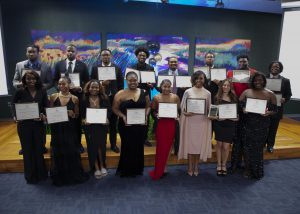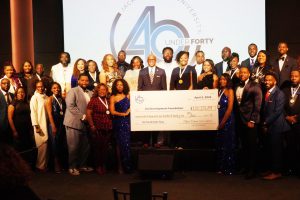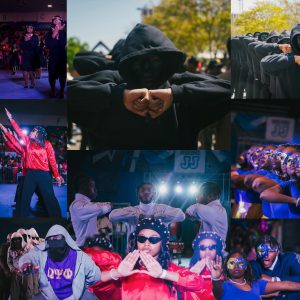Nadia Greene
Staff Writer
While many students, staff and alumni at Jackson State University are celebrating the founding of the institution and the joy of homecoming, October is also a time to bring awareness to the serious issue of domestic violence.
According to the National Statistics Domestic Violence Facts Sheet:
- On average, 20 people per minute are physically abused by an intimate partner in the United States
- 1 in 7 women and 1 in 25 men have been injured by an intimate partner
- Intimate partner violence accounts for 15 percent of all violent crimes
- Women between the ages of 18-24 are most commonly abused by an intimate partner.
Domestic abuse is not limited to romantic relationships but also familial relationships as well. The abuse can deal with physical, emotional, sexual, psychological, or economic trauma. It has no connection to specific gender, race, sexual orientation, or religious specific.
Some of the most common signs of domestic abuse include:
- Your partner finds enjoyment in embarrassing you in front of others.
- Your partner downplays your accomplishments to keep control of feelings .
- Your partner becomes more aggressive (pinching and shoving).
- Your partner begins to follow you to make sure you’re telling the truth.
- Your partner pressures you into things sexually.
- Your partner places the blame on you for small things to ignite a reaction.
- Your partner makes you feel like there was no way out of the relationship.
A senior music education major from Atlanta, Ga. recounted her experience with domestic abuse in her past relationship. She said it was a blindsiding experience that she never saw coming.
“It’s something you ignore until you get in that situation yourself,” the Georgia native said. “You pass judgment saying, oh, that’ll never be me. When it does all you can think is, oh my God, this is happening to me.”
As she recounted the events that took place in the relationship, she acknowledged that it gradually got worse as time went by.
“He was very sweet in the beginning, then it started off small like he would grab me up when I didn’t listen to him all the time or when we argued. That’s how it was for a while because most of it was mental in the beginning,” she said. “He’d make it seem like nobody would want me or people didn’t have my best interest at heart. My friends were my enemies and making new ones was something he didn’t like me to do.”
She added, “After a while, it got to me and I started to isolate myself from everybody, including my family. That’s when things took a turn for the worse. That’s when I met the real man behind the mask,” she said.
She expressed regret after she isolated herself from her friends and family. There were very few moments when she felt safe in her own relationship. She said she felt a sense of relief when she was forced to return home and could leave her boyfriend.
“He would beat me on a regular basis and it was easy because I was isolated from everybody, but when people were around, we were really good at hiding it. Part of me wanted somebody to catch on but I didn’t want anybody to get hurt on account of me so I suffered in silence,” she recounted. “I had to move out and go back home but after a while, I started to feel safe. He’d blow up my phone or pop up to my job so I had to get a restraining order on him and that was the scariest part because I didn’t know what he’d do.”

She added, “ Now I’m better and the PTSD is still there but therapy was something that helped me and continues to do so. It’ll be a while before I date again but at least I’m free.”
Taimont Johnson, a senior journalism and media studies major from Atlanta, Ga. said he has never experienced domestic abuse in relationships but he sympathizes with victims he has witnessed in those types of situations.
“It is sad to see because even though you want to help them, that fear is used to keep them stuck in place. I remember watching this girl on TikTok telling her story and it really gave me a different perspective because for the longest, I couldn’t understand why they just wouldn’t leave,” said Johnson.
Robin Alton, a senior civil engineering major from Wellford, S.C., believes there are multiple reasons a person might stay in an abusive relationship.
“Victims feel like they won’t find anyone better and it will get to the point where the victims will start to believe that they deserve the treatment,” said Alston.
Students experiencing domestic abuse in relationships can visit the Latasha Norman Center on the 2nd Floor of the Student Center or call 601-979-0374. You can also call the 24-hour National Domestic Violence Hotline at 1-800-799-7233.






Be First to Comment